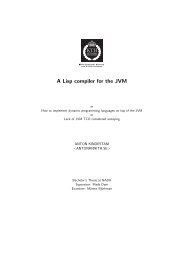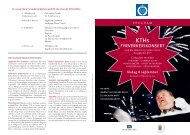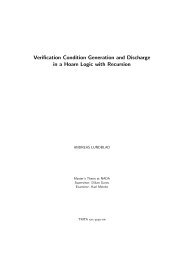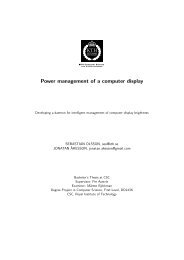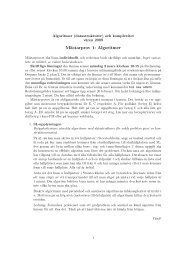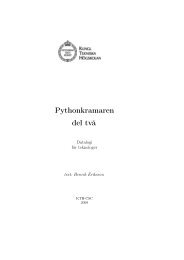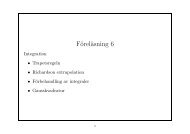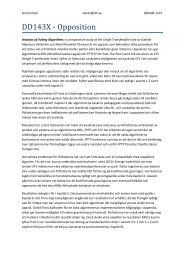Dr Faustus of Modern Physics - Department of Speech, Music and ...
Dr Faustus of Modern Physics - Department of Speech, Music and ...
Dr Faustus of Modern Physics - Department of Speech, Music and ...
Create successful ePaper yourself
Turn your PDF publications into a flip-book with our unique Google optimized e-Paper software.
220 CHAPTER 51. FINITE PRECISION COMPUTATION<br />
51.2 Analog <strong>and</strong> Digital Computation<br />
Finite precision computation has the following qualities:<br />
• simple microphysics,<br />
• basic assumption (<strong>of</strong> finite precision) possible to test directly,<br />
to be compared with those <strong>of</strong> statistical physics:<br />
• complex microphysics,<br />
• basic assumption (e.g. equidistribution) impossible to test directly.<br />
Note that Boltzmann’s basic microscopic assumption <strong>of</strong> statistical independence<br />
in a gas with each mole consisting <strong>of</strong> 6×10 23 molecules, seems to be<br />
beyond the possibility <strong>of</strong> any kind <strong>of</strong> conceivable experiment or mathematics;<br />
only indirect evidence in the form <strong>of</strong> macroscopic observations seem to be<br />
possible, which is far from enough. In fact, it is known that Boltzmann’s<br />
assumption can only be (nearly) true in the very special case <strong>of</strong> a very dilute<br />
gas with rare collisions, <strong>and</strong> the derivation <strong>of</strong> Boltzmann equations for more<br />
general situations seems to pose unsurmountable problems.<br />
In the above books I show that with finite precision computation it possible<br />
to mathematically prove <strong>and</strong> thus theoretically underst<strong>and</strong>, without<br />
resorting to statistics,<br />
• 2nd law <strong>of</strong> thermodynamics expressed in terms <strong>of</strong> kinetic energy, heat<br />
energy, work <strong>and</strong> turbulent dissipation, with explicit reference to entropy,<br />
• direction <strong>of</strong> time,<br />
• Planck’s radiation law,<br />
• basic aspects <strong>of</strong> turbulence including a resolution <strong>of</strong> d’Alembert’s paradox,<br />
<strong>and</strong> also related other results traditionally approached by statistical arguments.<br />
In short, finite precision computations opens to resolving some <strong>of</strong> the<br />
basic mysteries <strong>of</strong> physics. You don’t have to dwell into this if you don’t feel<br />
that you have to. In a way it is enough to underst<strong>and</strong> that the old dead-lock




